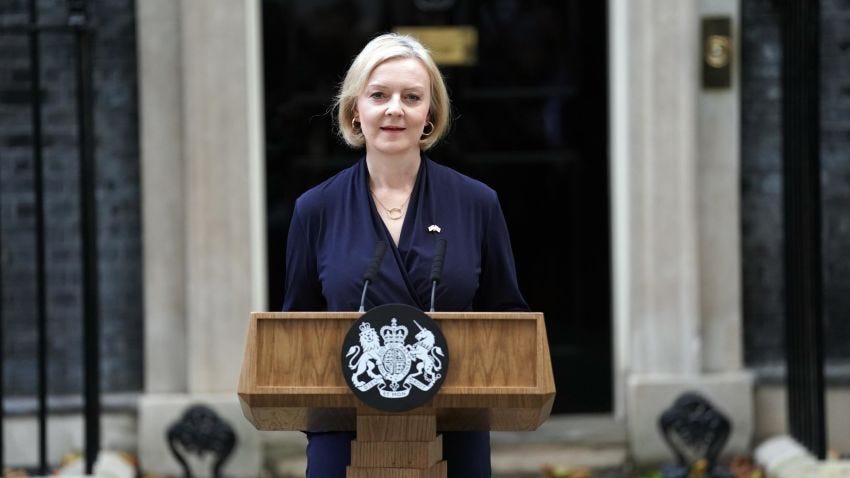I wrote this week for the Curious Investor about The Attractive Scarcity of UK Equities.
A year ago, the Curious Investor summarised the global macro outlook as:
Fiscally dominant governments in an increasingly fractured world mean that elevated inflation will persist beyond the current cycle without serious attempts to tackle debt-bloated government budgets.
Consequently, we identified a cautious approach to bonds and instead favoured owning real assets alongside equities, saying:
Most successful investing can be summed up as "go short abundant things and go long scarce things." In an era of fiscal dominance, bonds are among the most abundant assets around. Equities remain an attractive long-term asset class, but weightings to real assets might be preferable to bonds.
Over the last 12 months, despite a 100-bps reduction in BoE rates from 5.25% to 4.25%, UK long gilt yields have risen. The 10-yr yield rose by over 40 bps and the 20-yr by 65 bps. Both are above the peak Truss Crisis levels of October 2022. Despite this, the FTSE 100 has risen by over 7%, above the 8,000 level for the first time in several attempts, going back as far as 2018. However, the runaway winner over the period has been precious metals, with gold up 48% and silver 33%. It has been right to be short, abundant things and long, scarce things.
The world has become increasingly fractured, with Trump's tariffs being a notable example. Elon Musk and Donald Trump's dramatic break-up over the failed DOGE project and the passage of a Big Beautiful Bill of congressional pork-barrel spending has shredded any remaining vestiges of US fiscal responsibility.
The US policy pivot replays Bidenomic spending and Yellenomic financing. A tacit acceptance that the 10-year Treasury yield cannot be tamed and that the term premia, for longer-duration bonds, cannot be controlled. The back-to-the-future plan aims to stimulate the economy sufficiently to outrun the debt, funded increasingly with short-duration liabilities —a strategy known in UK policy circles as 'doing a Truss.' In this context, Trump's call for the Fed to cut rates by 100 basis points is unsurprising.
Such is the frenzy surrounding US government debt and its increasingly dysfunctional bond market that the Secretary of the US Treasury had to appear on Sunday morning TV to assure US citizens that their country was not about to default. When it gets to this stage, you know there is a problem. Of course, Scott Bessent is right; the US is not about to default. However, in real money terms, it is insolvent. It cannot repay its debts in today's purchasing power. The trick, the sleight of hand, is that it depends on the accuracy of your ruler—the value of the dollar.
As we said a year ago, either the government must revise its fiscal policy (of which there is no evidence and little chance), or the non-dollar value of US debt must decline sufficiently for it to become attractive to foreign investors. Rates need to rise, and/or the value of the dollar needs to fall compared to other currencies and to its purchasing power.
The UK's fiscal predicament is, in many ways, worse than that of the US. As the world's finance ministers ask themselves the same question —Who is going to buy my bonds? —30-year Gilt yields are the highest among the G7 at 5.20%. Vigilant bond investors are saying that the UK has the biggest problem.
However, the last time UK long-bond yields spiked to this level, in the aftermath of the Truss Mini-Budget, the pound plummeted to near parity with the dollar. Today, sterling trades over a third above that level at a four-year high and well above its post-Brexit average. This time, it is different; most Western governments are in the same boat, specifically the US.
The UK's moron premium, the UK's special Truss/Kwarteng borrowing spread, is now more broadly shared. Indeed, given the huge overweight position the world has in fully valued dollar assets, counterintuitively, this setup is proving positive for UK equity markets and asset values.
The repercussions of global capital escaping the dollar are playing out in unexpected ways. As Rachel Reeves finalises her Whitehall spending review, trying in vain to pour a gallon of much-needed spending requests into her pint pot of fiscally restrained headroom, the UK stock market is under siege. The FTSE 100 is at new highs, but below the surface, the sharpshooters of global capital are picking off what remains of the UK's small and mid-cap gems.
As London Tech Week got underway with Keir Starmer sharing the stage with the grand master of AI, Jensen Huang, CEO and founder of Nvidia (a company with a market capitalisation roughly equivalent to the entire UK stock market), three deals were announced valued at nearly £6bn in which US buyers agreed to acquire UK-based technology companies. (These were fabless semiconductor vendor Alphawave, instrumentation provider Spectris and privately held Oxford quantum spinout Ionics). Regardless of what we might think, to investors desperate to escape a dollar meltdown, the UK is a decent home for capital offered at attractive valuations. Importantly, these capital balances have a few extra zeros compared to those we typically see in the UK.
Broker Peel Hunt estimates that in the last five months, there have been 30 bids for UK companies with a market capitalisation of over £100m, totalling a value of £25bn. Spectris and Alphawave are the largest at £3.7bn and £1.8bn, respectively. Notably, there has been only one IPO YTD with a market capitalisation of over £100m, and the average takeover premium has been 43%, demonstrating the scale of undervaluation of UK assets.
As we wrote in April, the great rotation out of dollar-denominated assets has altered the dynamics of global capital flows, creating both opportunities and adjustment risks. As per Peel Hunt's analysis, UK equities are becoming scarcer, while bonds will remain abundant until the world rediscovers fiscal responsibility.
Here is my weekly chat with Gareth Evans about the week in markets. We discuss the fishy-sounding new type of stock exchange proposal, PISCES, approved by the FCA this week, among other things.









